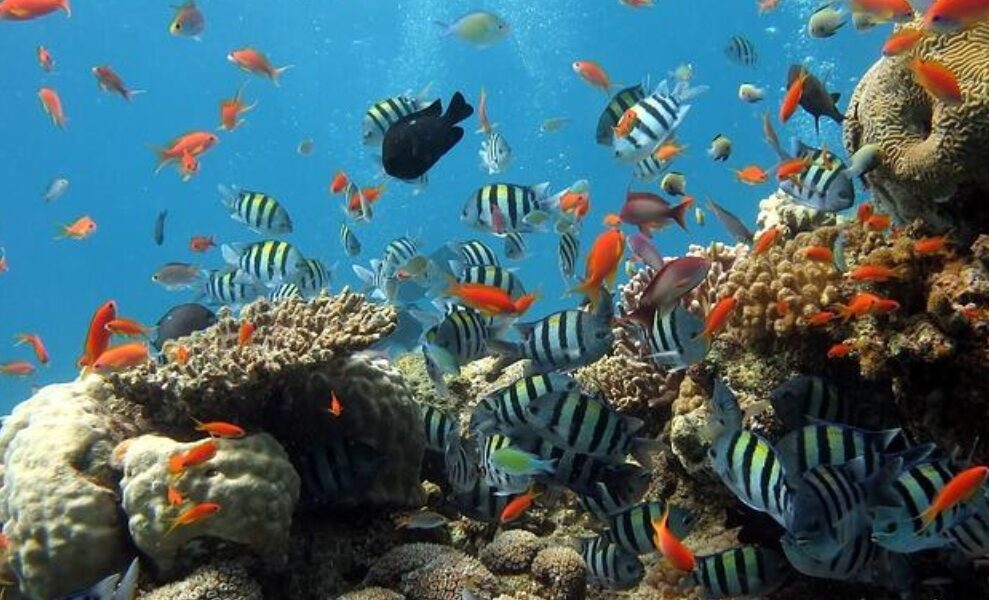Did you know that 1.6 million households in the U.S. own saltwater fish?
These mesmerizing creatures are known for their vibrant colors, unique shapes, and mesmerizing movements. They make great additions to any aquarium, whether you are a beginner or an experienced hobbyist.
However, caring for and maintaining small saltwater fish can be quite different from freshwater fish. Here are ways to help you provide the best care for your beloved saltwater fish.
Choose Compatible Species
When it comes to keeping multiple small saltwater fish in one tank, compatibility is key. Not all species get along well with each other. Some can even become aggressive towards one another.
Research the specific species you want to keep. Make sure they can coexist peacefully in the same tank. Avoid adding fish with different sizes or aggressive behaviors.
Provide a Suitable Environment
Saltwater fish need a specific environment to thrive, so it is crucial to set up their tank correctly. This includes using:
- Filtration system
- Proper water temperature
- Salinity levels
- Lighting requirements
- Appropriate tank size
- Substrate for bottom-dwelling fish
- Live rock or artificial decorations
Saltwater fish are sensitive to changes in their environment. It’s crucial to maintain consistency in the tank’s conditions to keep your fish happy and healthy.
Monitor Water Parameters
Regularly checking the water quality in your tank is essential for the health of your saltwater fish. Invest in a reliable test kit to measure pH, ammonia, nitrite, and nitrate levels.
If you notice any irregularities, take immediate action to correct them. Unbalanced water parameters can cause stress and illness in fish.
Feed a Varied Diet
In the wild, saltwater fish have access to a wide range of food sources. To mimic this natural diet, it is essential to provide a varied diet for your fish.
Include high-quality flakes or pellets specifically designed for saltwater fish as the primary source of nutrition. Supplement their diet with frozen or live foods. This can include brine shrimp, bloodworms, and mysis shrimp to provide extra nutrients.
Clean the Tank Regularly
Regular maintenance is crucial in keeping a healthy and clean environment for your saltwater fish. This includes routine water changes, cleaning the salt reef tank walls and decorations, and vacuuming the substrate.
Make sure to use appropriate tools and follow recommended guidelines when performing these tasks to avoid causing harm to your fish. Taking these steps will help prevent the buildup of harmful substances and promote a healthy ecosystem for your fish.
Observe Behavior Changes
Saltwater fish can’t communicate with us directly, but their behavior can tell us a lot about their health and well-being. Pay attention to any changes in their activity level, appetite, or appearance.
If you notice anything out of the ordinary, it could be a sign of illness. It is crucial to take prompt action and seek advice from a veterinarian or experienced fishkeeper.
Quarantine New Additions
When adding new fish to your tank, it is essential to quarantine them first before introducing them to the existing inhabitants. Quarantine tanks serve as a temporary home for new fish, allowing you to observe them and make sure they are healthy before introducing them to your main tank. This helps prevent the spreading of diseases and parasites to other fish in the tank.
In addition, quarantining allows new fish to acclimate to the tank’s water parameters and reduces stress during the transition period. It is recommended to quarantine new fish for at least two weeks before adding them to the main tank.
Keep an Eye on Aggressive Behavior
Aggression is prevalent in saltwater fish, especially when introducing new fish or rearranging decorations in the tank. While some aggression is normal, it can quickly escalate and harm other fish. Blue Tang, damselfish, and triggerfish are known to be more aggressive than other species.
If you notice any fish showing signs of aggression towards others, it may be necessary to remove them from the tank. Providing plenty of hiding spots and maintaining a peaceful environment can also help prevent aggression.
Consider Tank Size for Territorial Species
Some saltwater fish species are highly territorial and require more space to establish their territory. Make sure to research the specific needs of your fish and provide a tank size that can accommodate their territorial behavior.
Inadequate space can lead to stress, aggression, and poor health for these types of fish. Plus, overcrowded tanks can cause issues with water parameters and ultimately harm all the fish in the tank.
Research Potential Diseases
Like any living creature, saltwater fish are susceptible to diseases. It is essential to research common illnesses that may affect your fish and learn how to prevent and treat them.
Also, be aware of any quarantine or treatment requirements for new fish before adding them to your main tank. Taking necessary precautions can help minimize the risk of disease outbreaks in your all in one saltwater aquarium.
Avoid Overstocking
Overstocking is a common mistake among new saltwater fish owners. Although it may be tempting to fill your tank with various species, too many fish in one tank can cause stress, aggression, and pollution.
Make sure to follow recommended stocking guidelines based on the size and type of fish you have in your tank. This will help maintain a healthy and balanced ecosystem for your fish.
Be Prepared for Emergencies
Despite our best efforts, emergencies can still happen. It’s crucial to have a plan in place in case of power outages, equipment failures, or disease outbreaks.
Investing in backup power sources and having the necessary medications and tools on hand can help save your fish’s lives in case of an emergency. It is also essential to have a trusted veterinarian or experienced fishkeeper you can reach out to for advice and assistance.
Smart Ways of Caring for Small Saltwater Fish
By following these guidelines and staying attentive to the needs of your small saltwater fish, you can create a thriving and beautiful underwater ecosystem. Ensuring compatibility, providing a suitable environment, and maintaining regular maintenance are key elements in keeping your fish healthy and vibrant.
Remember that each species may have specific requirements, so continuous learning and adaptation are essential for successful fishkeeping. Enjoy the colorful and dynamic world of the best small saltwater fish in your carefully curated aquarium.
Do you want to see more helpful content? Feel free to explore more articles on our website.








